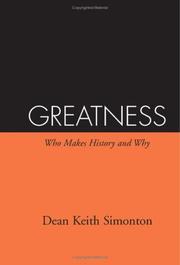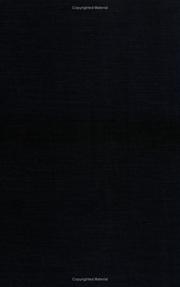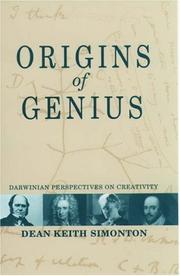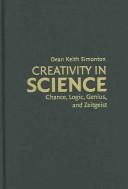| Listing 1 - 6 of 6 |
Sort by
|

ISBN: 0898623707 0898622018 Year: 1994 Publisher: New York Guilford
Abstract | Keywords | Export | Availability | Bookmark
 Loading...
Loading...Choose an application
- Reference Manager
- EndNote
- RefWorks (Direct export to RefWorks)
Genius --- History --- Génie (Aptitude) --- Histoire --- Philosophy --- Psychological aspects --- Philosophie --- Aspect psychologique --- Persoonlijkheidspsychologie --- History. --- Philosophy. --- Psychological aspects. --- traittheorieën --- traittheorieën. --- Génie (Aptitude) --- Gifted persons --- Genius - Philosophy. --- History, Modern --- Creative ability --- Intelligence levels
Book
ISBN: 0300047711 9780300047714 Year: 1990 Publisher: New Haven (Conn.): Yale university press,
Abstract | Keywords | Export | Availability | Bookmark
 Loading...
Loading...Choose an application
- Reference Manager
- EndNote
- RefWorks (Direct export to RefWorks)
Historiometry --- Historiometry. --- Methoden en technieken --- speciale methoden --- speciale methoden. --- Speciale methoden. --- Statistique appliquee --- Sciences humaines

ISBN: 0521352878 Year: 1988 Publisher: Cambridge Cambridge University Press
Abstract | Keywords | Export | Availability | Bookmark
 Loading...
Loading...Choose an application
- Reference Manager
- EndNote
- RefWorks (Direct export to RefWorks)
Creative ability in science --- Science --- -Scientists --- -Professions --- Natural science --- Science of science --- Sciences --- Scientific creativity --- Philosophy --- Psychology --- Methodology --- Creative ability in science. --- Scientists --- Philosophy. --- Psychology. --- Normal science --- Philosophy of science

ISBN: 1280472162 1423738772 0195351703 160256356X 9781602563568 9780195351705 0195128796 9780195128796 0197736351 0190284536 Year: 1999 Publisher: New York (N.Y.): Oxford university press,
Abstract | Keywords | Export | Availability | Bookmark
 Loading...
Loading...Choose an application
- Reference Manager
- EndNote
- RefWorks (Direct export to RefWorks)
How can we account for the appearance of such artists and scientists as Mozart, Shakespeare, Darwin, or Einstein? What conditions or personality traits seem to produce exceptionally creative people? Is the association between genius and madness just a myth? This text explores the origins of genuis.
Genius. --- Creative ability. --- Creativeness --- Creativity --- Ability --- Creation (Literary, artistic, etc.) --- Creative ability --- Intelligence levels --- Darwin, Charles, --- Darwin, Charles, Robert --- Genius --- Génie (Aptitude) --- Créativité --- Darwin, Charles, - 1809-1882

ISBN: 052154369X 0521835798 1139165356 Year: 2004 Publisher: Cambridge Cambridge University Press
Abstract | Keywords | Export | Availability | Bookmark
 Loading...
Loading...Choose an application
- Reference Manager
- EndNote
- RefWorks (Direct export to RefWorks)
Psychologists, sociologists, philosophers, historians - and even scientists themselves - have often tried to decipher the basis for creativity in science. Some have attributed creativity to a special logic, the so-called scientific method, whereas others have pointed to the inspirations of genius or to the inevitable workings of the zeitgeist. Finally, some have viewed scientific breakthroughs as the product of chance, as witnessed in the numerous episodes of serendipity. Too often these four alternative interpretations are seen as mutually exclusive. Yet the central thesis of this book is that the chance, logic, genius, and zeitgeist perspectives can be integrated into a single coherent theory of creativity in science. But for this integration to succeed, change must be elevated to the status of primary cause. Logic, genius and the zeitgeist still have significant roles to play but mainly operate insofar as they enhance, or constrain the operation of a chance combinatorial process.
Creative ability in science. --- Health Sciences --- Psychiatry & Psychology --- Scientific creativity --- Science --- Methodology --- Philosophy of science --- Industrial psychology
Book
ISBN: 0674424727 0674424751 Year: 1984 Publisher: Harvard University Press
Abstract | Keywords | Export | Availability | Bookmark
 Loading...
Loading...Choose an application
- Reference Manager
- EndNote
- RefWorks (Direct export to RefWorks)
| Listing 1 - 6 of 6 |
Sort by
|

 Search
Search Feedback
Feedback About UniCat
About UniCat  Help
Help News
News